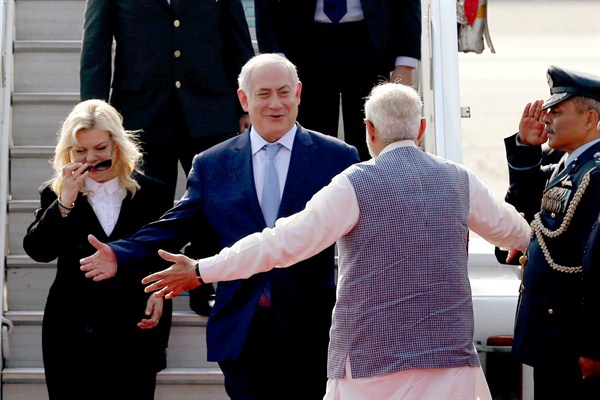Israeli Prime Minister Benjamin Netanyahu’s visit to India last week came at a tense time, or so it seemed. In late December, India voted in favor of a resolution at the United Nations General Assembly rejecting the Trump administration’s unilateral recognition of Jerusalem as Israel’s capital. Then, in early January, just two weeks before Netanyahu’s trip, India’s Ministry of Defense scrapped a $500 million deal with Israeli defense contractor Rafael to import Spike anti-tank missiles and later produce them under a license in India.
But Netanyahu’s government downplayed New Delhi’s vote at the U.N. before his six-day visit, and in India he appeared to salvage the missile deal in direct discussions with Prime Minister Narendra Modi, who reportedly agreed to buy a reduced number of Spike missiles. India has been Israel’s largest market for defense exports.
Since Modi made his own high-profile trip to Israel last summer, the first by a sitting Indian prime minister, the two conservative leaders have brought their countries closer together, promoting their own public chemistry as a sign of a stronger strategic partnership.

